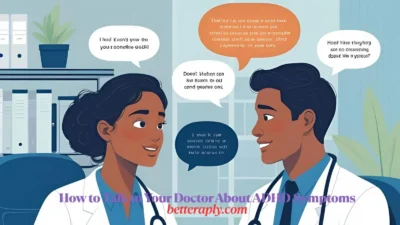What Not to Say to a Stroke Victim: Choose Your Words with Care
When someone experiences a stroke, it’s a life-changing moment—not just for them, but for the people who love and care about them. During recovery, words can become either a source of healing or a cause of hurt. That’s why it’s so important to understand what not to say to a stroke victim. Even well-meaning phrases can unintentionally make them feel misunderstood, discouraged, or alone.
Many friends and family members want to offer comfort, but they may not realize that certain remarks—like “You don’t look sick” or “At least it wasn’t worse”—can minimize the survivor’s emotional and physical struggles. Stroke recovery is different for everyone, and comparing situations or offering empty reassurances often backfires.
Instead of guessing what might sound encouraging, take time to listen. Let the person guide the conversation. Avoid comments that dismiss their pain or push them to “get back to normal.” Being present, patient, and respectful is more powerful than trying to “fix” the situation with words.
Understanding what not to say to a stroke survivor helps protect their dignity and emotional well-being.
The emotional and physical journey after a stroke can be overwhelming. Your words have power—they can lift someone up or make them feel misunderstood and alone. That’s why it’s so important to approach these conversations with care, patience, and respect.
In this guide, we’ll explore what not to say to a stroke victim, real-life examples, and better ways to express your support. Whether you’re a friend, family member, or caregiver, your voice can help them feel seen, valued, and not judged for their recovery process.
Sorry Generator
“You Don’t Look Sick”

This phrase might sound like a compliment—but it can feel dismissive.
Why it hurts: Many stroke survivors struggle with invisible challenges like fatigue, brain fog, or memory issues. Saying they “don’t look sick” may make them feel like their pain isn’t valid.
What to say instead:
- “You’re doing really well. How are you feeling today?”
- “Let me know if there’s anything I can help with.”
💬 Scenario: Emma is recovering from a mild stroke but still feels exhausted. When a friend says, “You look totally fine,” she feels misunderstood and isolated.
What NOT to say:
- “You look normal to me.”
- “You seem fine now, though.”
- “It can’t be that bad.”
“At Least It Wasn’t Worse”

Trying to find a silver lining isn’t always helpful.
Why it hurts: Comparing their stroke to something more severe can make them feel like their experience isn’t serious enough to matter.
What to say instead:
- “That must have been scary—how are you coping?”
- “I’m really glad you’re here. I’m here for you.”
🧠 Scenario: After his stroke, David hears, “At least it wasn’t a massive stroke.” He feels guilty for struggling when people act like it could’ve been worse.
What NOT to say:
- “You’re lucky it wasn’t more serious.”
- “Other people have it worse.”
- “It could’ve been a lot worse, you know.”
“Hurry Up and Get Better”
Recovery from a stroke is not quick or predictable.
Why it hurts: Healing takes time. Telling someone to “hurry up” adds pressure and can make them feel like they’re letting others down.
What to say instead:
- “Take your time. You’re doing great.”
- “Every step forward counts—I’m proud of you.”
⏳ Scenario: Lisa is frustrated by slow progress in her speech therapy. A relative says, “You’ll be back to normal soon, right?” It makes her feel rushed and unseen.
What NOT to say:
- “When will you be back to normal?”
- “You should be walking by now.”
- “You’re still not better?”
“Everything Happens for a Reason”
This phrase can feel like you’re minimizing their pain.
Why it hurts: While some people may find comfort in this idea, many feel it brushes off their trauma and emotional reality.
What to say instead:
- “I can’t imagine how hard this is for you.”
- “I’m here to support you however you need.”
💔 Scenario: After her stroke, Maria is trying to adjust to her new life. When a coworker says, “There’s a reason for everything,” it feels cold and dismissive.
What NOT to say:
- “It’s all part of the plan.”
- “This will make you stronger.”
- “There’s a lesson in this.”
“You Were So Smart Before”
Even if meant kindly, this comment stings.
Why it hurts: A stroke can affect speech, memory, and mental clarity. Pointing out how someone “used to be” implies they’ve lost their value or identity.
What to say instead:
- “You’re doing incredibly well.”
- “You’re still you—and I’m proud of your strength.”
🧠 Scenario: Tom struggles to find the right words during conversations. A friend says, “You were always the sharp one.” It feels like a painful reminder of what he’s lost.
What NOT to say:
- “You were better before.”
- “You used to be quick with words.”
- “This really changed you.”
“I Know How You Feel”
Unless you’ve had a stroke yourself, you don’t.
Why it hurts: Everyone’s experience is unique. Assuming you understand can feel dismissive or even insulting.
What to say instead:
- “I can’t fully understand, but I’m here to listen.”
- “Tell me what this has been like for you.”
👂 Scenario: A well-meaning friend tells Sarah, “I know how frustrating it is to forget things—I do it all the time.” It makes Sarah feel like her condition is being downplayed.
What NOT to say:
- “I get it—I’ve had brain fog too.”
- “I forget things all the time, it’s no big deal.”
- “I know how you feel.”
Final Thoughts: Speak With Heart, Not Assumptions
Knowing what not to say to a stroke victim is about compassion. Words matter, especially during recovery. Even kind intentions can cause harm if the words come off as dismissive or rushed. Instead, lead with empathy, patience, and respect. Focus on listening more than talking, and be present without judgment. Your thoughtful words can be a huge part of their healing process.




